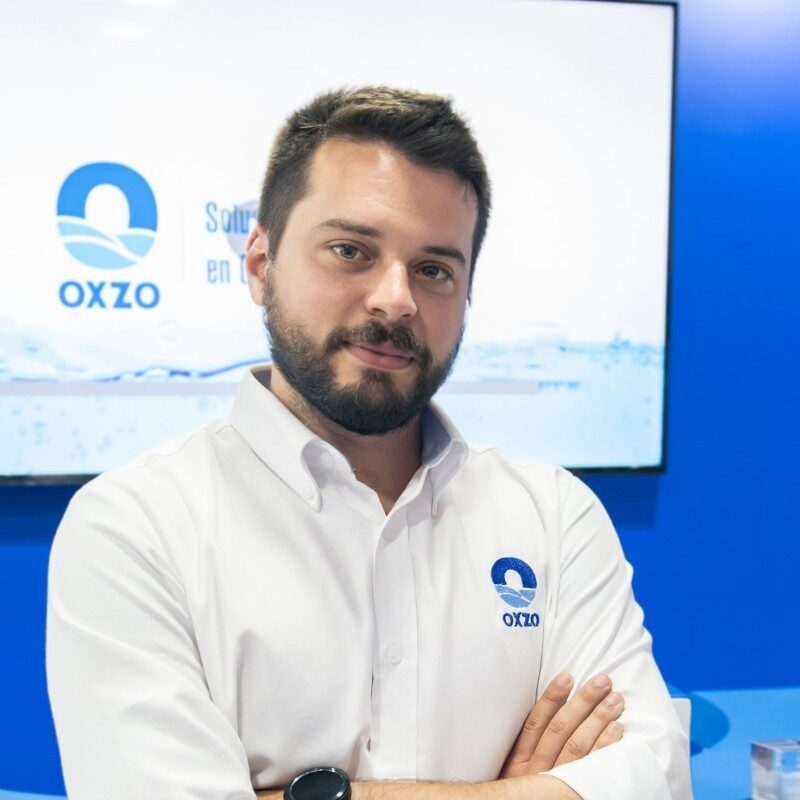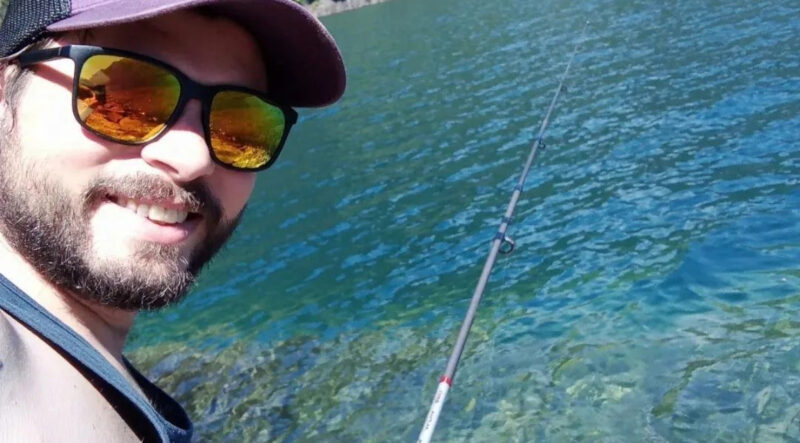THIS IS SALMON FARMING with BENJAMIN DEL CURTO
Behind the scenes in aquaculture, there is a significant amount of unseen work carried out by multiple experts from diverse fields, collaborating in remote areas, all deeply concerned about the well-being and health of the fish 24/7.
By: Samantha Bacchus McLeod
SeaWestNews
Aquaculture is responsible for thousands of high-paid, skilled, and rewarding jobs across British Columbia. As the demand for sustainable and affordable farmed salmon grows worldwide, there is a fit for virtually any career path in this industry. In the fifth of our Q&A series with young professionals in BC’s salmon farming sector, we speak with Benjamin Del Curto, Business Development Manager, Oxzo Technologies Inc.
Where do you call home now?
I came to Campbell River from Chile in January of this year, accompanied by my wife and three beloved dogs.
What are a couple of opportunities you encounter as a young salmon farmer in British Columbia?
There is no doubt in my mind that the aquaculture industry is going into an exciting new era and being able to contribute to those changes is fascinating. There lies an incredible opportunity to shape the future of aquaculture in British Columbia and Canada.
Furthermore, as a young salmon farmer in British Columbia, we have the chance to incorporate and promote new sustainable aquaculture practices and technologies. By adopting environmentally friendly methods we can position our salmon to meet the increasing demand for eco-friendly products.
That said, would you share a couple of insights into the sustainable practices and environmental considerations that are so important in salmon farming?
Water quality stands as one of the most critical factors in sustainable aquaculture. Creating a favorable growth environment significantly improves the overall health and growth of the fish. To achieve this, it is essential to regularly monitor water parameters such as temperature, oxygen levels, and nutrient concentrations.
Moreover, the incorporation of renewable energy plays a significant role in reducing the overall carbon footprint. Adopting alternative energy sources strengthens production and growth efficiency, leading to a more sustainable approach in salmon farming.
What are a couple of challenges you face as a young salmon farmer in British Columbia?
Aquaculture faces a substantial amount of misinformation regarding its development and operations. Some people fail to grasp the extensive research and efforts invested in every fish raised in these controlled environments. As the new generation of salmon farmers, it becomes our responsibility to both mitigate these misconceptions and educate those individuals.
Also, the quest to discover and adopt new technologies and practices in salmon farming poses a significant challenge, given the potential impact on the industry. With technology evolving rapidly, we must keep our eyes open, constantly seeking out new changes and opportunities to enhance our practices and ensure continuous improvement.
So, in your experience, what are some misconceptions or misunderstandings people may have about salmon farming, and how do you educate the public about it?
A common misconception is that salmon farming negatively impacts the environment, particularly through pollution and the spread of diseases to wild fish. However, this belief is unfounded and inaccurate.
Additionally, the information in the use of treatments is also misunderstood in most cases, leading the reader to believe that hormones are administered to farmed salmon to accelerate growth or may exaggerate the environmental impact.
As part of this industry, it is frustrating to witness how the misinformation and propaganda affects the reputation of the industry and disrespects the collective efforts of each and every one of us, whose only goal and effort is to present a high-quality product, produced with the best practices, to the market.
There’s a lot of work that the public do not see. Behind the scenes, there is a significant amount of unseen work carried out by multiple experts from diverse fields, collaborating in remote areas, all deeply concerned about the well-being and health of the fish 24/7.
Educating the public about these topics presents challenges, as the most effective method would be for them to experience a fish farm firsthand. However, I understand that this approach may not be practical or efficient. Hence, our mission is to bridge the gap by providing personal interactions and sharing experiences with the public. Through person-to-person engagement, showing the real people behind the industry, making it more relatable and helping the public gain a deeper understanding of salmon farming.
How do/would you balance the economic aspects of salmon farming with the need for environmental stewardship and conservation?
I believe that dedicating efforts to research and development of new technologies while maintaining a long-term perspective will propel the industry towards achieving highly efficient production costs with minimal environmental impact. This progress will position salmon as the leading protein choice in the market.
What kind of technological advancements or innovations have you seen in salmon farming since you have been in the industry, and how has it influenced your work?
Being part of a company committed to providing an optimal environment for salmon growth, through oxygenation and aeration systems, utilizing renewable energy, embracing automation, and adapting to site-specific requirements, has significantly shaped my approach to finding solutions for each unique farming site.
Understanding and studying the different realities and requirements of each site is essential to provide precisely what they need. As a result, my work revolves around thoroughly studying each case, researching the technologies required, and continuously seeking opportunities for improvement to achieve the most efficient and innovative outcomes.
Last two questions, first one is, what are your interests when not at work?
My interests revolve around playing guitar, sports, and cooking, which I am deeply passionate about.
And the last one, how do you enjoy your salmon?
I think sashimi is the best way to eat salmon to really enjoy the quality, texture and flavor, a subtle addition of soy sauce really enhances its natural flavors.
Also, a pan seared salmon with a mushroom risotto is quite a stunning dish that I prepare quite frequently at home.

Images courtesy of Benjamin Del Curto

